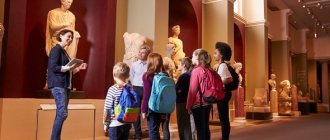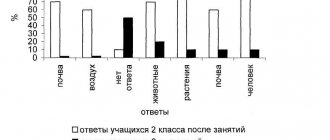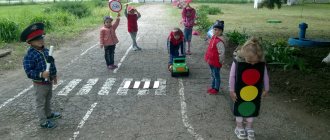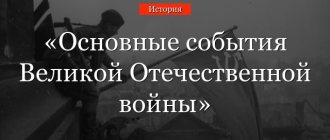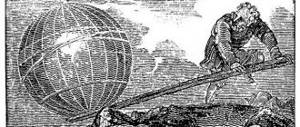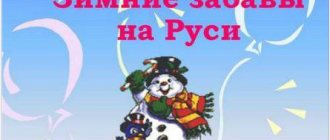Project work on the topic: “Celebration of all holidays, celebration of celebrations - Great Easter”
Project work on the topic:
“Holiday to all holidays, celebration to all celebrations - Great Easter”
Author:
Chubaeva Natalya Nikolaevna, teacher of an extended day group, first qualification category, Municipal Educational Institution “S(K)OSHI No. 4”, Magnitogorsk city, Chelyabinsk region.
Project passport
| Project name | “Holiday to all holidays, celebration to all celebrations - Great Easter” |
| Problem task | Insufficient interest of children and parents in the formation of spiritual and moral values of children on the basis of Orthodox culture |
| Project organizer | Educator: Chubaeva Natalya Nikolaevna |
| Project type | Information-creative-oriented |
| Project type | short |
| Geography of the project | MS (K) OU S (K) OSHI No. 4 of the city of Magnitogorsk, Chelyabinsk region |
| Target audience for the project implementation | Students of MS(K)OU S(K)OSHINo.4 grades 3-4 and their parents |
| Relevance of the project | School is the main link in the system of educating the younger generation. The teacher requires not only knowledge of the subjects and methods of teaching them, but also the ability to direct his activities towards the spiritual and moral education of the child through introducing him to Orthodox culture. The introduction of children to Orthodox culture is considered through introducing them to the traditions of celebrating the Orthodox holiday of Easter. Easter or the Holy Resurrection of Christ attracts attention with its brightness, scale, deep ancient traditions, and originality. That is why, teachers of grades 3 and 4 decided to expand students’ knowledge about the origin of this holiday, with its traditions, because the folk culture of the holiday has been significantly undermined these days. It's no secret that we have to relearn how to celebrate our traditional holidays. Once upon a time, traditions were passed down in the family from generation to generation - “by word of mouth”, "heart to Heart". Orthodox holidays introduce children to the existing traditions and customs of the Russian people and help convey high moral ideals to the child. We, adults, must introduce children to the history of our Motherland and teach them how to use the wealth of cultural traditions. |
| Project goal and objectives | Target: Introducing primary schoolchildren to national culture by developing interest in the traditions of celebrating the Christian holiday “Easter. Bright Resurrection of Christ." Revival of folk culture traditions. Tasks: — To acquaint children with the history of the origin of the holiday, the customs and traditions of celebrating Easter; — Introduce folk games traditionally held during the Easter period; — Development of creative abilities within the framework of the project — Develop interest in Russian national culture; — To cultivate patriotic feelings for the traditions of the Russian people; — Encourage parents to collaborate with their children on the topic of the project. |
| Project product | Children's electronic Orthodox newsletter “Holidays, celebrations - Great Easter” |
| Forms of work for the implementation of project work | Role-playing games, conversations, competitions, game programs |
| Project implementation timeframe | 15.04.2016.- 5.05.2016 |
The ideological content and sequence of implementation of project work.
The revival of the culture and traditions of the Russian people within the framework of the spiritual and moral education of the younger generation is the main task of the educational process in primary school in accordance with the requirements of the Federal State Educational Standard of the new generation. The highest spiritual and moral values are love, mercy, compassion, patriotism, respect for one’s people, the traditions by which man has lived for centuries. But during Soviet times, many Orthodox traditions were forgotten, and religious upbringing and education were completely prohibited. This is how several generations of people grew up knowing nothing about their roots, culture and faith of their ancestors. But in our country there are people who know and carefully preserve different traditions. In turn, in our school we will introduce children to the origins of the cultural traditions of the Russian people in order to continue Orthodox customs and rituals.
The ideological content of the project work is in the phased development by the project participants of the foundations of Orthodox culture through the study of national traditions of celebrating Great Easter. The project work consists of four stages.
1.
Preparatory stage
Implementation timeframe:
15.04.16.- 18.04.16
Target:
Studying the possibilities and needs of parents for the formation of Orthodox culture through familiarizing children with the history of the Easter holiday
Tasks:
— Studying the level of awareness and motivation of parents in matters of formation and education of Orthodox culture in children, Russian traditions of the Orthodox holiday of Easter
— Study of scientific and methodological literature on the problem:
— Studying new, more effective forms of working with parents to form Orthodox culture among students
Implementation activities
— Analysis of scientific and methodological literature;
-Creation of material and technical, personnel, organizational, scientific and methodological conditions;
— Questionnaire of parents.
— Selection of materials for conducting interviews,
— Conducting consultations, illustrative material, fiction, folklore on this topic.
— Selection of illustrative material, literary sources on the topic of the project.
2. Main stage:
Implementation deadlines
: 18.04.16.-27.04.16
Target:
Create conditions for the development of the creative potential of every child.
Tasks:
— Inform parents about the implementation of the project
— Introduce innovative technologies and forms of work with families and students to implement the project
Implementation activities
— Arouse interest in research and educational activities among students on the topic of the project
— Organization and implementation of planned events on the topic of project work.
3. Final stage.
Implementation deadlines:
28.04.16. – 29.04.16
Target:
Development of positive emotions in the process of creative activity within the framework of the project
Tasks:
— Instilling design and aesthetic skills in students, taking into account the methodological requirements for project activities.
— Involving parents in joint creative activities with students.
Implementation activities
— Conducting sports festivals, health days, quizzes and KVN on healthy lifestyle, creative reports at the end of the school year, etc.
— Drawing up recommendations for parents and students on designing a folder and creating a multimedia product
— Preparation for the organization and holding of the Easter Chime holiday, release of the holiday script.
— Release of the children's electronic Orthodox newsletter “Holidays are a holiday, celebrations are a celebration – Great Easter.”
4. Final stage.
Implementation deadlines:
30.04.16.-5.05.16
Target:
Improving the results of project work through the dissemination of experience in the field of formation of Russian traditions.
Tasks:
— Promote the development of cognitive abilities and creative abilities of children;
— Activate the cognitive activity of children;
— Actively involve parents in the work of education and formation of Orthodox culture.
Implementation activities
— Study of the effectiveness of the work carried out based on an analysis of the action plan, the effectiveness of the selected methods, the results of the implementation of the assigned tasks are summed up, and the degree of achievement of the project team is assessed. The contribution of each project participant in its implementation is noted. Presentation on the project activities of the GPD teacher at the Moscow Educational Institution for educators at MS(K)OU S(K)OSHI No. 4
Plan - an action map for the implementation of the project for children 10-11 years old
| Stages of work on the project | Activities of the teacher | Activities of students together with parents | Deadlines |
| Preparatory stage | — Determination of the topic, purpose and objectives of the project work; — Identification of information sources; | 15.04.-17.04 | |
| Introductory lesson on the topic: “Journey to the origins of our ancestors” | Getting acquainted with the young researcher's memo Drawing up a plan for joint activities to implement the project | 16.04.2016 | |
| Main stage | Information hour – communication “At the origins of our ancestors. Where did Easter come from? | Creation of pages for the electronic newsletter, mini-presentation “Where Easter Came From” | 18.04.-19.04.16 |
| Informational conversation on the topic “Customs and traditions of celebrating Holy Easter in Baptized Rus'” | Creation of pages for the electronic newsletter, mini-presentation. “Customs and traditions of celebrating Holy Easter of Baptized Rus'” | 19.04.16-20.04.16 | |
| Conversation on the topic “The history of the Easter egg. Legends about the origin of the tradition of dyeing eggs" | Creation of pages for the electronic newsletter, mini-presentation. “The story of the Easter egg. Legends about the origin of the tradition of dyeing eggs" | 21.04.16 -22.04.16 | |
| Conversation on the topic: “Easter dishes” | Creation of culinary pages for an electronic newsletter on the topic of conversation | 23.04.16.- 24.04.16 | |
| Introductory conversation on the topic: “Easter holiday in folklore. Easter games" | Creation of pages for the electronic newsletter, mini-presentation. "Easter Games" | 25.04.16 – 26.04.16 | |
| An hour of communication on the topic “Celebrating Easter in different countries” | Creation of pages for the electronic newsletter, mini-presentation. "Celebration of Easter in different countries" | 27.04.16 | |
| Release of the script for the holiday “Easter Chime” | Preparing for the holiday according to ancient customs and traditions | 27.04.16 – 28.04.16 | |
| The final stage | Celebration "Easter Chime" | Defense of the project “Children’s electronic Orthodox newsletter “Holidays, celebrations, celebrations - Great Easter” | 29.04.16 |
| Final stage | Analysis of joint creative activity “CHILDREN – PARENTS – TEACHER” as part of the implementation of project work Preparation of a photo report on project activities Multimedia presentation “The role of family and school in the formation of Orthodox culture using the example of Easter traditions” | 30.04.16.-5.05.16 |
Expected results
Children and parents will develop an interest in national culture, folk art, and the Orthodox meaning of celebrating Easter.
Children and parents will gain knowledge about the customs and traditions of the holiday.
Children will get acquainted with poems, songs, and paintings dedicated to Easter.
Children will learn to play folk games traditionally played on Easter days;
Children will become familiar with the stages of research activities;
Children will receive practical skills necessary in arts and crafts, in creating a multimedia presentation;
Creative activities of children together with parents.
Sources:
https://lomonpansion.com/articles_2_3447.html
https://infourok.ru/velikaya_pasha.___proektnaya_rabota.-422913.htm
https://nsportal.ru/detskiy-sad/okruzhayushchiy-mir/2014/04/22/proekt-prazdnik-paskhi
https://doc4web.ru/okruzhayuschiy-mir/urok-orkse-tema-pasha.html
